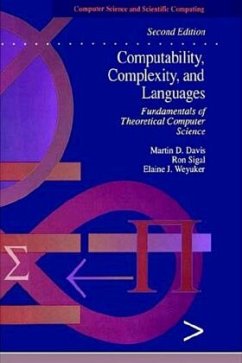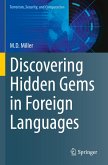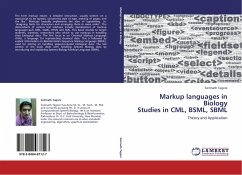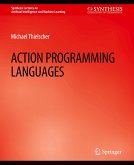Computability, Complexity, and Languages is an introductory text that covers the key areas of computer science, including recursive function theory, formal languages, and automata. It assumes a minimal background in formal mathematics. The book is divided into five parts: Computability, Grammars and Automata, Logic, Complexity, and Unsolvability.
"If there is a single book on the theory of computing that should be in every college library collection, this is it. Although written as a text for an advanced undergraduate course in theoretical computer science, the book may serve as an introductory resource, or the foundation for independent study, in many areas of theoretical computing: grammars, automata theory, computability, complexity theory, and unsolvability. The beauty of this book is that the breadth of coverage is complemented with extraordinary depth." --CHOICE
"Theoretical computer science is often viewed as a collection of disparate topics, including computability theory, formal language theory, complexity theory, logic, and so on. This well-written book attempts to unify the subject by introducing each of these topics in turn, then showing how they relate to each other... This is an excellent book that succeeds in tying together a number of areas in theoretical computer science." --COMPUTING REVIEWS
"Theoretical computer science is often viewed as a collection of disparate topics, including computability theory, formal language theory, complexity theory, logic, and so on. This well-written book attempts to unify the subject by introducing each of these topics in turn, then showing how they relate to each other... This is an excellent book that succeeds in tying together a number of areas in theoretical computer science." --COMPUTING REVIEWS



